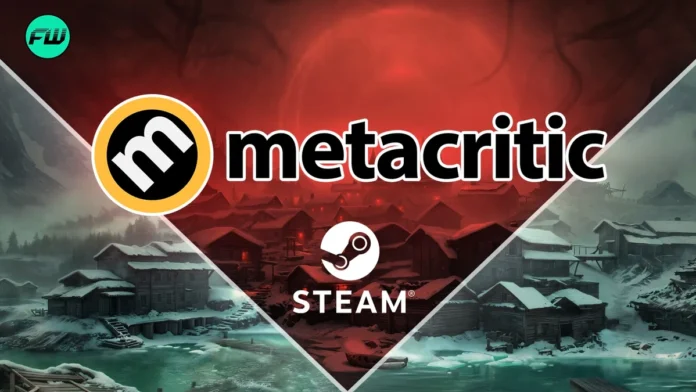Let’s be honest – we’ve all been there. You’re hyped for a new game, you check Metacritic , and the score either confirms your excitement or sends you spiraling into doubt. But here’s the thing: in a world overflowing with opinions, does Metacritic still hold the sway it once did? Is it still a reliable barometer of quality, or has it become just another data point in the noise?
The Rise of the Aggregator | How Metacritic Changed the Game

Back in the day – we’re talking early 2000s – finding reliable game reviews was a chore. You’d have to scour different websites, magazines, and forums. Metacritic emerged as a beacon of order, aggregating reviews from various sources and distilling them into a single, easy-to-understand score. It was revolutionary. Finally, a way to quickly gauge the overall critical reception of a game, movie, or album. This system helped players make informed purchasing decisions.
But, and this is a big ‘but’, that simplicity also became its biggest weakness. Averaging scores inevitably leads to nuance being lost.
And, of course, the weighting of different publications and their scores can be a bit of a black box. How does Metacritic decide which reviews matter more? The algorithm isn’t always transparent.
The Problem With Averages | When Numbers Don’t Tell the Whole Story
Here’s where things get tricky. A single number can’t possibly encapsulate the complexity of a game. What if a game has a brilliant story but flawed gameplay? What if it’s technically impressive but artistically bankrupt? The Metacritic score won’t tell you that. It’s just a number.
Plus, the system is open to manipulation. Review bombing, where users flood a game with negative reviews (often for reasons unrelated to the game itself), can artificially lower the Metacritic score. This has become an increasing problem, particularly in politically charged gaming topics.
And the flip side is true, too. Publishers have been known to pressure reviewers or offer incentives for positive coverage, potentially skewing the results in the opposite direction.
Beyond the Score | Finding Value in a Sea of Opinions
So, if Metacritic isn’t the be-all and end-all, what is? The answer, as with most things, is more nuanced. Here’s the thing – you have to use it as one tool among many. Read individual reviews. Watch gameplay videos. Talk to friends whose tastes you trust. Consider the context.
What fascinates me is how the rise of streaming and Let’s Plays has changed the game (pun intended!). Now, you can watch hours of gameplay before even considering buying a game. That’s far more informative than any aggregated score.
Don’t get me wrong, Metacritic score is still useful for a quick glance, but don’t let it be the only thing that sways you.
Furthermore, consider the type of game you are looking into. A game like Elder Scrolls , for example, are massive games with a deep community. Scores don’t always account for this engagement and may not be indicative of the total value that the players find.
The Future of Game Reviews | What Comes Next?
The world of game reviews is constantly evolving. We’re seeing a shift towards more personalized recommendations, with algorithms that try to match you with games you’ll actually enjoy. Platforms like Steam and the Epic Games Store have their own user review systems, which can be helpful (though also prone to review bombing).
I initially thought this was straightforward, but then I realized, what matters is the source. The most valuable opinions are the ones that come from people you trust, whether it’s a friend, a YouTuber, or a professional reviewer whose tastes align with yours. Ultimately, finding the right game is about finding your tribe.
And remember to double-check on the site, as review aggregators may have issues such as Mega Millions Lottery being reviewed as well.
The Takeaway | Be Your Own Critic
So, is Metacritic still relevant? Yes, in a limited way. It’s a useful starting point, a quick way to get a sense of the general consensus. But it shouldn’t be the final word. Don’t let a number dictate your enjoyment. Explore, experiment, and form your own opinions. After all, that’s what gaming is all about. And don’t be afraid to disagree with the crowd. You might just discover a hidden gem that everyone else missed. Always be on the lookout for gaming review scores and game critics that you align with.
FAQ | Your Burning Metacritic Questions Answered
What if I completely disagree with a game’s Metacritic score?
That’s perfectly fine! Taste is subjective. If you enjoy a game, that’s all that matters.
Can Metacritic scores predict whether I’ll like a game?
Not necessarily. They offer a general indication but don’t guarantee your personal enjoyment.
How often are Metacritic scores updated?
They are updated frequently as new reviews are published.
What are some reliable alternatives to Metacritic?
Consider OpenCritic, which offers similar aggregation with added transparency, or explore individual review sites and YouTube channels that align with your tastes.
Is there a bias towards certain types of games on Metacritic?
Some argue that certain genres or developers receive more favorable coverage than others, so it’s important to consider the source and potential biases.

